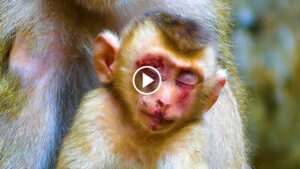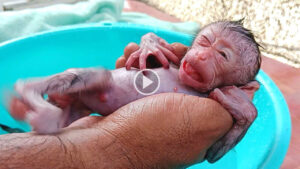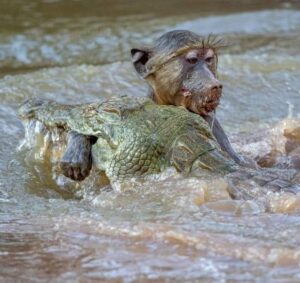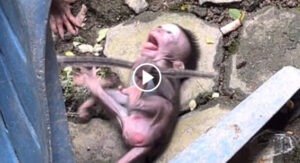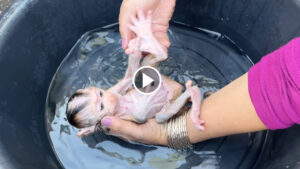When a newborn baby monkey is crying, it is essential to understand and address the underlying cause. Just like human infants, baby monkeys cry for various reasons, and attentive care is crucial for their well-being and development. Here are some steps and considerations to ensure the baby monkey’s needs are met:
Assess Basic Needs
First, ensure the baby monkey’s basic needs are met. Check if it is hungry. Baby monkeys, especially in the early stages, require frequent feeding. If the mother is present, ensure she is nursing the infant properly. If the baby is orphaned or rejected, you might need to provide a suitable milk formula. Consult with a veterinarian for the appropriate type of formula and feeding schedule.
Comfort and Security
Newborn monkeys need a sense of comfort and security. Ensure the environment is warm, quiet, and safe. The baby might be crying due to feeling cold or insecure. Wrapping the baby in a soft blanket or providing a stuffed animal can simulate the presence of the mother, offering comfort. Gentle rocking or holding the baby close can also help soothe its cries.
Health Check
Crying can be a sign of discomfort or illness. Observe the baby for any signs of health issues such as lethargy, diarrhea, or unusual physical symptoms. If the crying persists despite addressing basic needs and providing comfort, it is crucial to consult a veterinarian. The vet can perform a thorough health check to rule out any medical conditions that might be causing distress.
Emotional and Social Needs
Baby monkeys are highly social animals and require interaction and bonding. Lack of social interaction can cause distress and crying. If the mother is absent, it is vital to spend time with the baby, engaging in gentle play and providing social stimulation. Interaction with other monkeys, if possible, can also be beneficial for the baby’s emotional development.
Monitor and Adapt
Continuous monitoring is essential. Each baby monkey is unique, and their needs can change rapidly. Keep track of feeding times, sleep patterns, and any changes in behavior. Adapt your care routine based on these observations to ensure the baby monkey is growing and developing healthily.
In conclusion, when a newborn baby monkey is crying, it is important to assess and address its basic needs, provide comfort and security, conduct health checks, fulfill emotional and social needs, and continuously monitor its condition. This holistic approach ensures the baby monkey receives the necessary care and support for healthy growth and development.
